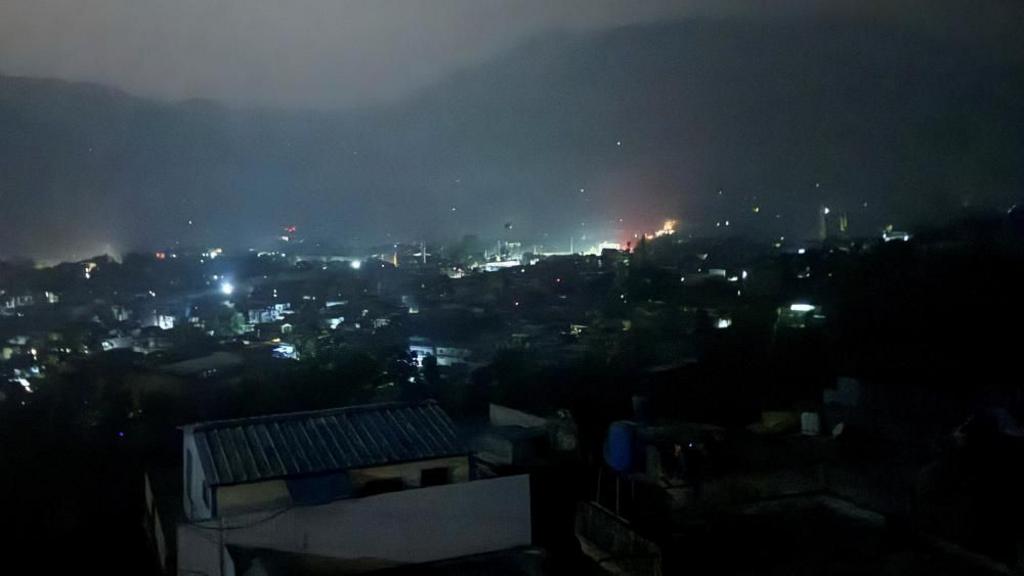MIDNIGHT EXPLOSIONS ROCK PAKISTAN! India Confirms 'Operation Sindoor'; Islamabad Vows Revenge for 'Cowardly' Attack!

The fragile peace of South Asia was shattered Wednesday as India announced it had launched "Operation Sindoor," conducting strikes against what it termed "terrorist infrastructure" in Pakistan and Pakistan-administered Kashmir. The dramatic escalation comes in the devastating aftermath of the April 22nd Pahalgam terror attack in Indian-administered Kashmir, where 26 tourists, including a Nepali citizen, were brutally murdered – an event that has left families grieving and a region on high alert.
The Indian government, in an official statement, confirmed the operation, stating its forces had targeted "nine sites" from where "terrorist attacks against India have been planned and directed." Emphasizing a degree of caution, the statement asserted, "Our actions have been focused, measured and non-escalatory in nature. No Pakistani military facilities have been targeted. India has demonstrated considerable restraint in selection of targets and method of execution." The government explicitly linked this severe measure to the "barbaric" Pahalgam attack, vowing that those responsible would be held accountable. The Indian Army later posted on X (formerly Twitter), "Justice is Served."
However, Pakistan immediately presented a starkly different and alarming account. A spokesperson for Pakistan's military declared that India had attacked Pakistan and Pakistan-administered Kashmir with missiles in three locations, labeling it a "shameful and cowardly attack that was carried out from within India's airspace." Islamabad has vowed to "respond to this [attack] at a time and place of its choosing," adding that "all of our air force jets are airborne."
Further details emerged from Pakistan’s Director General of Inter-Service Public Relations (ISPR), Lieutenant General Ahmed Sharif Chaudhry, who informed a Pakistani news channel that Indian missiles had struck Muzaffarabad and Kotli in Pakistan-administered Kashmir, and Bahawalpur in Pakistan. The human cost of these strikes, from Pakistan's perspective, was quickly highlighted by Defence Minister Khawaja Asif. Speaking to a local TV channel, Asif asserted that India launched missiles from within its own airspace and that these strikes hit civilian areas, directly refuting India's claim of targeting only "terrorist camps" as "false."
The grim reality of military action was underscored by reports of multiple loud explosions heard in several places in Pakistan and Pakistan-administered Kashmir. Witnesses in Muzaffarabad reported a power blackout following the blasts, painting a picture of fear and chaos for ordinary people caught in the crossfire.
The situation further intensified with the Indian Army reporting that Pakistan had "fired artillery in Bhimber Gali in Poonch-Rajauri area" in India-administered Kashmir, across the heavily militarized Line of Control. The Indian armed forces stated they were "responding appropriately in a calibrated manner," indicating an active exchange of fire and a broadening of the conflict.
For people across South Asia, particularly in Nepal which mourns its own citizen lost in Pahalgam and shares a long, open border with India, these developments are a source of profound anxiety. The swift escalation from a horrific terror attack to cross-border military strikes by two nuclear-armed nations places the entire region on a knife-edge. The lives of millions are overshadowed by the spectre of a wider conflict, even as both nations offer sharply conflicting narratives about the night's terrifying events. The international community's response and calls for de-escalation are now awaited with bated breath.
Operation Sindoor
![From Kathmandu to the World: How Excel Students Are Winning Big [Admission Open]](https://www.nepalaaja.com/img/70194/medium/excel-college-info-eng-nep-2342.jpg)
